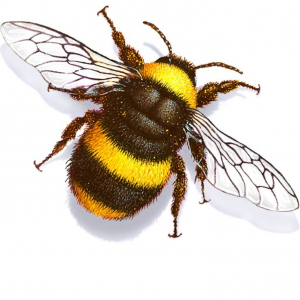
Government breaks promise to maintain ban on bee-harming pesticide (Jan 2021)
"Scientists have observed significant declines in some British bee species since 2007, coinciding with the introduction of thiamethoxam, which was previously widely used. Studies suggest that it weakens bees’ immune systems, harms the development of baby bees’ brains and can leave them unable to fly. Another study has found honey samples being contaminated by neonicotinoids ... (see below)
"Matt Shardlow, the chief executive of the invertebrate conservation group Buglife, said it was an “environmentally regressive” decision that would destroy wildflowers and add to an “onslaught” on insects. “In addition, no action is proposed to prevent the pollution of rivers with insecticides applied to sugar beet,"
"A pesticide believed to kill bees has been authorised for use in England despite an EU-wide ban on its use outdoors two years ago and an explicit government pledge to keep the restrictions ...
"Following lobbying from the National Farmers’ Union (NFU) and British Sugar, a product containing the neonicotinoid thiamethoxam was sanctioned for emergency use on sugar beet seeds this year because of the threat posed by a virus .." (PDF)
Honey tests reveal global contamination by bee-harming pesticides (Oct 2017)
"Neonicotinoid insecticides are found in 75% of global honey samples and half contain a cocktail of chemicals ...
"... Mitchell said: “If you look at the minimum concentration for which a significant negative impact on bees has been found, then 48% of our samples exceed this level.” The researchers said these impacts include damage to learning, behaviour and colony success."
All but two of the samples had total contamination levels below the “maximum residue level” (MRL) allowed for human consumption under EU laws. But Mitchell said there was little published research on the effect of neonicotinoids on vertebrates, though there were some indications of harm. “You can wonder if the MRLs are really good enough – I think this is an open question, ”Mitchell said.
"Bees and other pollinators are vital to three-quarters of the world’s food crops but have been in serious decline in recent decades. The destruction of wild habitats, disease and widespread pesticide use are all important factors ...
"... research showing most farmers could slash their pesticide use without losses, a UN report that denounced the “myth” that pesticides are necessary to feed the world, and a UK chief government scientist stating that the assumption by regulators it is safe to use pesticides at industrial scales across landscapes is false ...
"Contamination rates were highest in North America with 86% of samples containing one or more neonicotinoid, followed by Asia (80%) and Europe (79%). It was lowest in South America at 57%. Almost half the samples contained a cocktail of the insecticides." (PDF)
"Jean-Marc Bonmatin ... said: The use of these pesticides runs contrary to environmentally sustainable agricultural practices. It provides no real benefit to farmers, decreases soil quality, hurts biodiversity and contaminates water, air and food. There is no longer any reason to continue down this path of destruction."
See also:
- Pesticides damage survival of bee colonies, landmark study shows (Jun 2017)
- Nerve Agents in Honey (2017).
- Country-specific effects of neonicotinoid pesticides on honey bees and wild bees (2017)
- A worldwide survey of neonicotinoids in honey (2017)
- UPDATE 30MAY22 Half of British butterfly species on new Red List (PDF)
________
See previous:
- World Bee Day 20 May 20
- Bleadon Bees (July 2019)
- BOB Environment Page



Make A Comment
Comments (0)